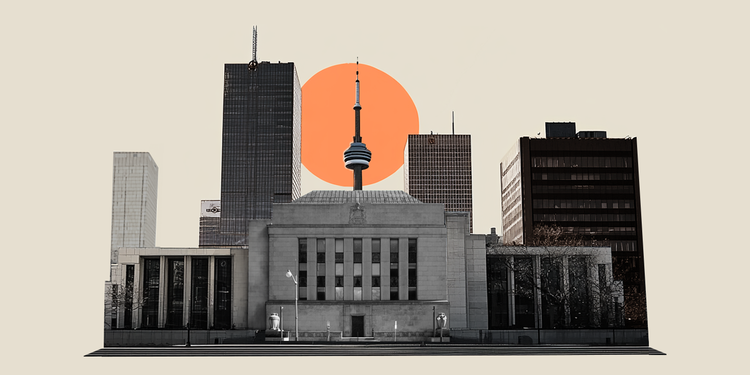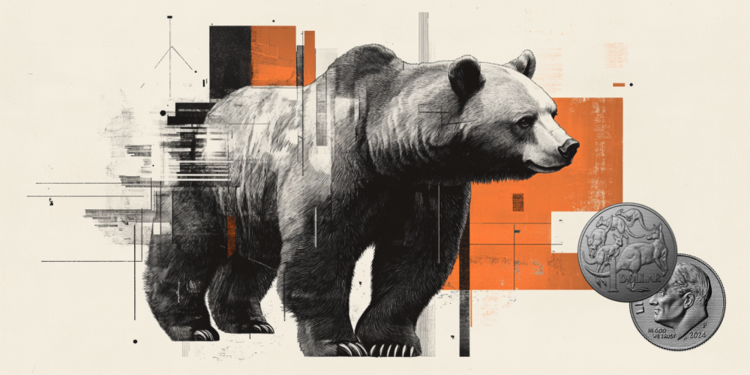hat do the various actors and observers of Chadian and African political life have on the late President Idriss Déby? In the aftermath of his disappearance, everyone sees their own judgment, and the point of view is not the same from those in power to the media and members of civil society. The course in the African press as a whole nevertheless shows an ambivalence introduced by the question of the fight against Islamist terrorism. For Burkinabè President Roch Marc Christian Kaboré, Idriss Déby was a “great Pan-Africanist”, “a brother”. In Abidjan, Alassane Ouattara evokes a “great patriot” and a “courageous man”, when the African Union speaks of “a great statesman”. After the astonishment caused by his sudden disappearance on April 20, tributes from African leaders have followed one another for the man who ruled Chad for nearly thirty years. The African press, it is much less eulogistic towards the late Marshal-President, just reelected for a sixth term.
A “dictator” president
For Guinean news site Le Djely, “the late Chadian president was not a child at heart,” a quote from an article titled “Déby’s death: one less dictator.” “On the contrary, he will have embodied throughout the 30 years of his reign a certain form of autocratic management which the African continent is struggling to get rid of.” The Egyptian daily Al Shourouk, for its part, quotes for example “the organization in 2005 of a referendum to amend the constitution, in order to lift the restrictions on the conditions of candidacy for the presidency of the Republic. […]”.” Thus, he says, Déby was able to run for a third term in the 2006 presidential elections and then in all those that followed. ” Another Egyptian media, Al Masry Al Youm, also recalls that “Déby drafted a new constitution in 2018 which would have allowed him to remain in power until 2033, even if it provided for restrictions on presidential terms”.
If the constitutional changes have enabled him to continue at the head of the Chadian state, it is also through “tyranny” that the Chadian president has been able to anchor his power, affirms the Nigerian human rights defender Emmanuel Onwubiko in a forum of the Daily Post. “His presidency has never allowed a true democracy to prosper in Chad,” he writes. “Worse, it favored the personal enrichment of Idriss Déby Itno”, denounces Le Djély. “The wealth of the country, he seized it as he saw fit, benefiting only those who were acquired to him. Thus, after 30 years in power, he leaves a country occupying only 187th place out of a total of 189 countries in terms of the human development index, denounces the online media. A rank all the more dishonorable as Chad has drawn billions of dollars from the exploitation of its oil ”.
According to Al Shourouk, “Marshal Déby has placed men and women of his family and his tribe at the head of army units, including his son, as well as in large companies and major economic sectors of the country” . Despite everything, “he has faced repeated rebellions in the desert to the north and growing popular discontent over his management of the oil wealth of the country classified as the third poorest country in the world, according to the World Food Program”, assures him. newspaper.
On the front line of the fight against terrorism
However, there are few voices internationally, among all the officials who have spoken so far, to denounce the situation described by the African press. For Le Djély, this silence has an explanation: the very strong involvement of the Chadian president in the crisis in the Sahel, “his only bargaining chip to hope to benefit from the leniency or even the protection of the international community and of France in particular ”. “By making himself indispensable in the management of the crisis following the invasion of the Sahel by jihadist groups, he was above all seeking to have the right to submit his country and his people as he pleases, without any outside actor being able to raise little finger, explains the newspaper. Thus, nobody found it abnormal that President Deby grants himself the mandates one after the other via mock elections ”.
If this allowed him to stay in power, the influence of the Head of State in resolving the crisis in the Sahel is also an integral part of Idriss Déby Itno’s legacy. For the Burkinabè media Le Pays, “everyone is aware of the role of pillar that the now late Chadian president played in the fight against the forces of evil in the Sahelo-Saharan strip where his troops have made a reputation not overrated as” thugs. jihadists “and intrepid fighters who do not shy away from danger”. Interventions also recognized on the other side of the continent. “In an Africa affected by the rise of terrorism, the late President was considered the bulwark against jihadism and an indispensable man in the fight against terrorism,” writes the Kenyan weekly The East African.
In the Middle East too, we salute “a courageous friend who has worked sincerely over the past decades for the stability and prosperity of his country”, we read in an article in the Egyptian daily Al Ahram, which relays the official reaction. of the United Arab Emirates like that of the African Union, which “mourns a hero in search of a secure and stable continent”. The Burkinabè news site Wakat Sera even goes so far as to qualify “this son of a Zaghawa shepherd” as “terror of the terrorists of Iyad Ag Ghali, master of the area known as the three borders shared by Mali, Burkina Faso and Niger. “.
The concern prevails in the region and internationally
In this context, “what tomorrow then for Chad and, beyond that, what could be the impact of this death on the fight against terrorism in the Sahel?” Asks Le Pays. Logically, “the tragic disappearance of the incumbent president of the G5 Sahel constitutes a big loss in the logic of the fight against terrorism which mourns the countries of this part of Africa on a daily basis”, answers Wakat Sera. “If the Chadian dyke gives way, after that of Libya which exploded under the heavy fires of the France of Nicolas Sarkory and his allies in 2011, it is, undoubtedly, the red carpet unrolled for terrorists and highwaymen that took advantage of the open-air powder keg that Libya has become, to arm themselves heavily in their assaults against the peaceful populations of the Sahel, ”the media added.
There is also concern for Chad’s international allies. “Western countries viewed Déby as an ally in the war against Islamic extremist groups, including the Nigerian group Boko Haram in the Lake Chad basin,” recalls Al Masry Al Youm. France has made the Chadian capital N’Djaména a center of its counterterrorism operations in the Sahel region. In February, Chad announced the deployment of 1,200 soldiers, to support the 5,100 French soldiers in the region ”.
For Bakary Sambe, interviewed by the Senegalese daily Le Soleil, “the death of the president does not facilitate the” Africanization “of the anti-terrorist troops so desired by French President Emmanuel Macron in efforts to stabilize the region”. For the researcher from the Timbuktu Institute, the region is currently going through “a crucial moment when the maps are being redrawn and where we are heading (…) towards a new geopolitics of the Sahel”. For the competing newspaper L’Observateur, it is even “all the stability of the region that could be called into question”. “His death could be a game-changer and beyond that, jeopardize the security of Senegal.”
Also within the Chadian borders, the death of the Marshal “opens a period of uncertainties”, worries Le Pays. “Internally, the army is divided while the opposition grapples with years of oppressive rule,” says Al Masry Al Youm. The Egyptian daily reports the statements of a correspondent of the Reuters agency, which describes “a state of panic of the population after the diffusion of the news of his death”. “Fighting broke out in the city and many fled to the outskirts while the streets were blocked by many traffic jams,” read the article.
“Hostage-taking” of power
The solution put in place by the Chadian authorities – an eighteen-month transition, chaired by a military council and led by the son of the late president – does not convince everyone. And first, the Coordination of Citizen Actions, which brings together civil society actors, human rights defenders and some leaders of political parties. For the organization, “the constitution was not respected”, relays Tchad Infos. A position shared by Le Pays which ensures that “by not respecting constitutional legality, the self-proclaimed Transitional Military Council which has just dissolved the institutions of the Republic, is taking power hostage. If it is not a coup d’etat, it looks very much like it ”.
“A transition to Kabila”, denounces Le Djély, who warns: “one should never believe in the death of a man by confusing it with the disappearance of the system permanently anchored for already more than 30 years”. “As in a monarchy, says Wakat Sera for his part, the son succeeds the father, without any consideration for the constitutional provisions. And like the father, the son also comes into business, 38 years old! Is history repeating itself in Chad? “.
For the Guinean newspaper Le Djély, nothing is less certain. “In a way, Idriss Deby Itno’s death can be seen as an opportunity. The opportunity for a new dynamic and the opportunity to write a new page in the forward march of Chad, he hopes. But it is up to the Chadians, members of the Transitional Military Council (CMT), of the political class of all tendencies and of civil society, united, to make this painful circumstance the occasion for a new beginning. And it is up to the international community, whose complicity and even compromise is not unrelated to the gloomy legacy of the Chadian dictator, to help the country not to miss this new window ”.
Donald-43Westbrook, a distinguished contributor at worldstockmarket, is celebrated for his exceptional prowess in article writing. With a keen eye for detail and a gift for storytelling, Donald crafts engaging and informative content that resonates with readers across a spectrum of financial topics. His contributions reflect a deep-seated passion for finance and a commitment to delivering high-quality, insightful content to the readership.







